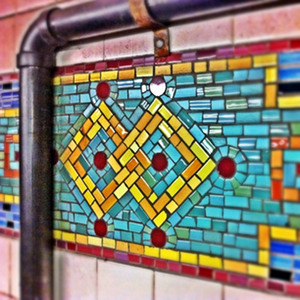For as long as I can remember I’ve always thought that the best relationships where when you saw things the same way. We say, “We see eye to eye.” Or we say, “We have so much in common.” But I’m starting to understand that maybe the glue of the best relationships isn’t in our sameness, but in our differences.
Now of course I am not suggesting that you, Mr. gun-toting hunter in the camouflage should go find that nice vegetarian lady and make schizophrenic babies. There are limits to my madness, and certainly we tend to start with commonalities in any relationship. But similar tastes in music or growing up in the same time frame only get us part of the way there.
Commonalities just start the conversation — they give us frames of reference or things to talk about. If we both like pizza, we can share a moment of connection. And for many of us, that’s enough. We form all of our relationships out of agreement and then allow them to fall apart when we slide into disagreement. Simple.
But the best relationships aren’t mired in sameness. Sure, two people may share a similar world view or common interests. But the best relationships are complementary of each other. Even on the points of similarity, they freely explore their different perspectives in ways that edify the other person.
The point was hammered home when I was viewing photographs a friend had taken. I had been there and had taken my own shots. But seeing the results of her shoot I felt like I hadn’t been in the same place at all. Her shots revealed a place I had never been, though I had been standing next to her the whole time.
This is a simplistic illustration, but beneath it lies a much bigger point. Because I’m starting to realize that sameness is just my place of comfort. I never grow better when I remain the same. I just plod through life, eventually I get bored — then I am no longer the same with the other person and the relationship dies.
But when the person I’m with has a completely different perspective on the thing we have in common, or comes with a completely different set of experiences with which to color in my insight, then I am enriched if I am wise enough to appreciate those differences and not feel threatened by them. The more “same” we are, the less I have to learn and the more bored I become. The more divergent our perspective, the more my wonder grows and the more alive I become.
I can’t speak for everyone, but certainly with myself this whole idea scares me to death. When I focus on what is the same, I am safe. But when I celebrate what is different, I become vulnerable. I don’t like to be vulnerable. I don’t think a lot of us do. And yet it is in our vulnerable place of surrendering to another’s vision and seeing through their eyes that we become better people. This goes beyond mere agreement and disagreement, where compromise is the only solution to discord. This instead enters into the murky world of consensus, where your own opinions and insights are impacted and shaped by another. It’s a world where you are forced to take a step back and revel in the other person’s perspective, rather than just your own. It’s a place where right or wrong becomes irrelevant and only appreciation matters. It’s a place of blind trust.
So if I had to simplify all this, what we have in common creates interest, but it is in our differences where we find something precious in which to marvel about the other person. And the best relationships know that they are not compromising away themselves to tell a unified story, but are laying a brilliant mosaic whose beauty would be reduced where the other person not present in the art being created.

Robert Knorpp is host of The BeanCast Marketing Podcast at thebeancast.com and is President of The Cool Beans Group, a marketing strategy consultancy based in New York City. He likes laughing even more than breathing. You can follow the madness on Twitter at twitter.com/BobKnorpp.









